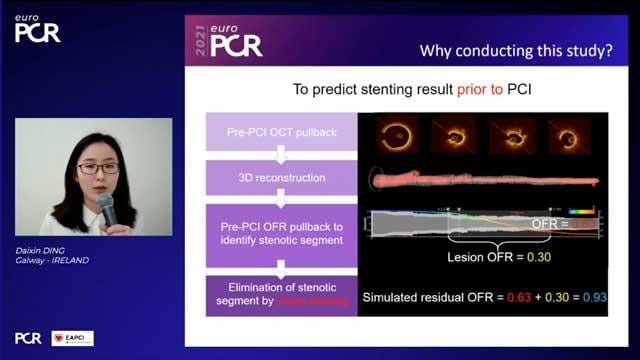
Yoshinobu Onuma
Latest contributions
Featured research: advances in TAVI for aortic regurgitation and severe stenosis
16 Nov 2025 – From PCR London Valves 2025
This session delivers an in-depth analysis of innovative research in transcatheter aortic valve implantation (TAVI). It includes pivotal studies such as the LANDMARK trial subanalysis on cardiac damage in severe aortic stenosis patients, long-term efficacy comparisons of balloon- and self-expanding valves, and evaluations of valve performance...
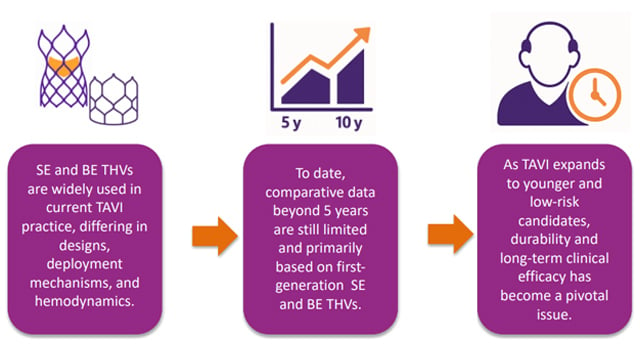
Left main and complex bifurcation stenting
22 May 2025 – From EuroPCR 2025
In this EuroPCR 2025 session, discover best practices for managing left main and challenging bifurcation lesions, from choosing a stepwise provisional side branch stenting strategy to using intracoronary imaging and physiology to guide and optimise PCI results.
Learn how the Ultimaster Nagomi™ sirolimus-eluting stent system builds on...
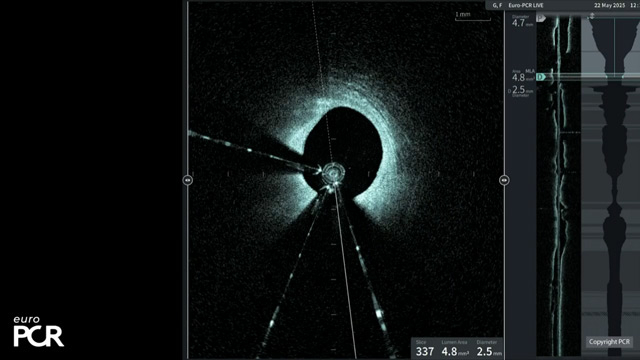
Artificial intelligence in the cathlab
22 May 2025 – From EuroPCR 2025
Delve into the transformative role of artificial intelligence (AI) in the cathlab. This session covers AI applications for vulnerable plaque identification using intracoronary OCT, automated coronary angiogram analysis, rapid AI-based OCT interpretation, AI-enhanced decision-making for PCI optimization, and noninvasive microvascular resistance assessment powered by AI.
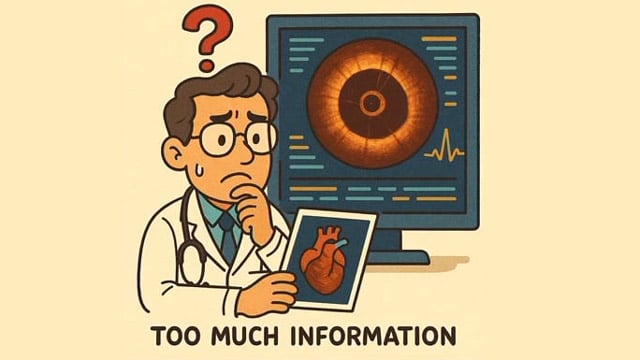
The Landmark RCT - One-year results
21 May 2025 – From EuroPCR 2025
This session presents a detailed analysis of a landmark randomized controlled trial evaluating the Myval transcatheter aortic valve implantation (TAVI) system among other contemporary transcatheter valves. The discussion centers on one-year clinical outcomes, with a particular focus on women, patients with small aortic annuli, and those...
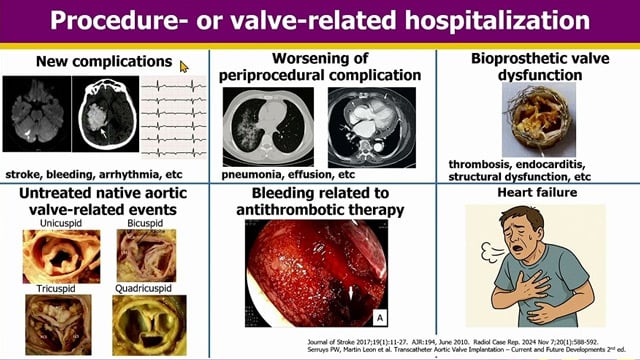
Supraflex for high-risk patients and lesions: from practice to evidence-based medicine proven through FIRE and COMPARE
20 May 2025 – From EuroPCR 2025
Discover the latest evidence on the Supraflex thin-strut sirolimus DES in complex cases—from small vessels and diabetes to STEMI—supported by OCT analysis. This session highlights Supraflex’s performance in high bleeding risk and elderly patients, featuring data from FIRE, COMPARE, EARTH HBR, and Cruz Senior studies. Get...
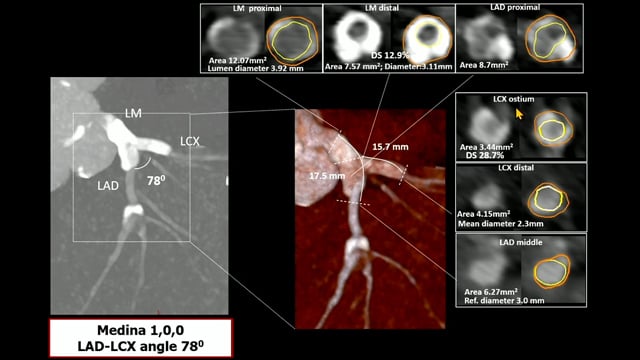
The future is now: QFR and RMS to optimise coronary artery disease patient management
20 May 2025 – From EuroPCR 2025
See how next-generation technologies are reshaping coronary artery disease treatment in this EuroPCR 2025 session. Learn how QFR is being used to plan PCI and evaluate results, and discover new insights into RMS technology—offering a potential leap beyond traditional drug-eluting stents. From practical case experience to...
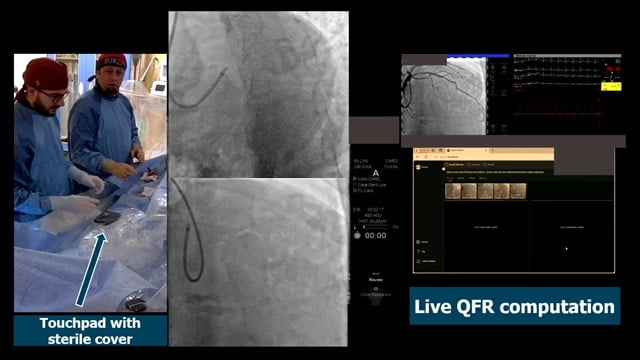
Stent or Leave: considerations for a successful DCB PCI
27 Feb 2025
Watch the replay webinar with F. Ribichini, F. Jafary, Y. Onuma and B. Scheller to learn how to “control” dissections during lesion preparation, and much more!
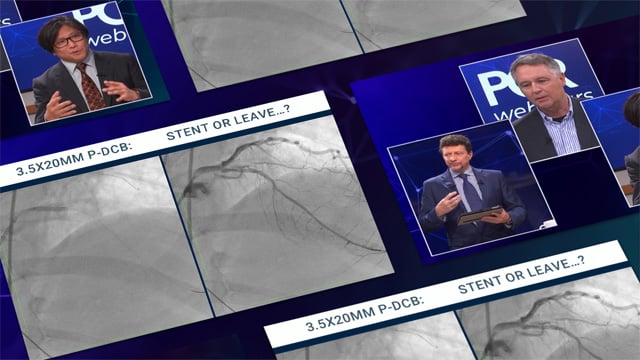
Comparative insights into QFR, FFR, and angiography
16 May 2024 – From EuroPCR 2024
This session, comprising selected EuroPCR 2024 Abstract submissions, focuses on various aspects of assessing and managing multivessel coronary artery disease. It includes presentations and discussions on the use of quantitative flow ratio (QFR) for assessing non-culprit lesions in acute myocardial infarction, functional assessment of surgical revascularization,...
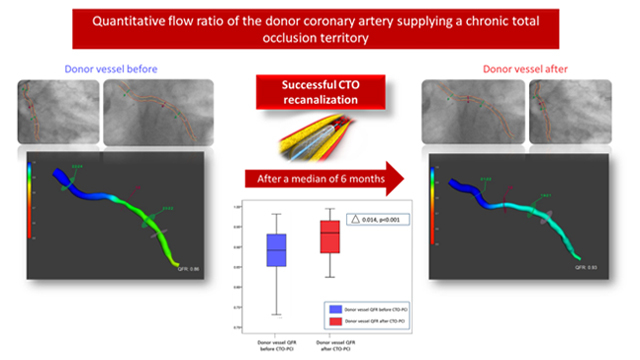
The ARC consensus on DCB - evidence-based DCB technology
15 May 2024 – From EuroPCR 2024
In this replay, discover why DCBs are essential in treating de novo CAD, the importance of optimal lesion preparation for long-term success, and how future trials will focus on treatment strategies rather than device comparisons, highlighting the need for further research.
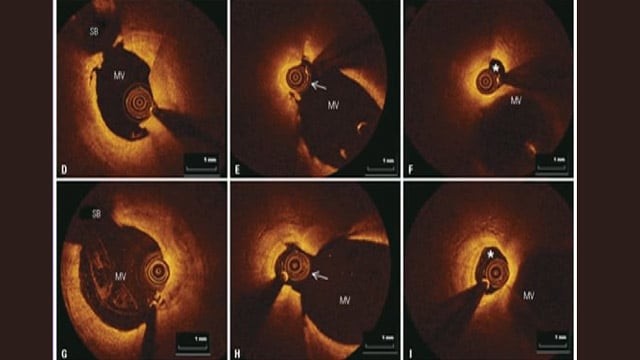
LANDMARK RCT - Early outcomes of a randomised non-inferiority trial comparing TAVI devices: the LANDMARK trial
15 May 2024 – From EuroPCR 2024
This session provides an overview of the early outcomes of the LANDMARK trial, a randomized non-inferiority trial comparing TAVI devices. It examines baseline characteristics, the significance of intermediate sizes according to MSCT recommendations, real-world representative cases from the LANDMARK RCT, insights from quantitative aortography and echocardiography...

Left main and complex bifurcation stenting
14 May 2024 – From EuroPCR 2024
Watch this session focused on a patient with distal left main stenosis to understand that the stepwise provisional side branch (SB) stenting strategy is the standard approach for most left main trifurcation lesions. Discover the importance of optical frequency domain imaging for strategy determination and bifurcation...

Diagnosis and procedural strategies for severely calcified lesions
18 May 2023 – From EuroPCR 2023
Dealing with severely calcified lesions? Explore the insights from two cases showcased in this session, and leverage Flavio Ribichini's algorithm for angiographic calcified lesions, as well as Yoshinobu Onuma's algorithm for calcified lesions with adjunctive imaging modalities, to enhance your management strategies!
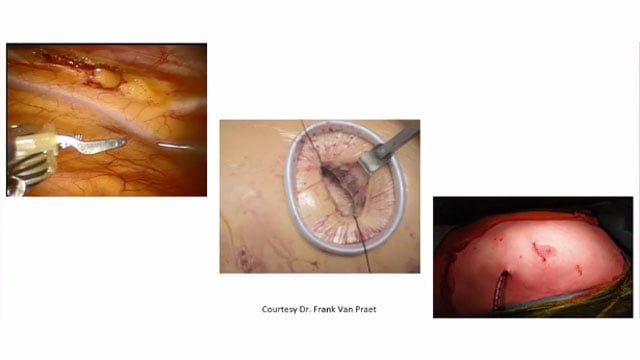
Coronary CT reading
18 May 2023 – From EuroPCR 2023
Watch this session to master reading and interpreting standard coronary CT angiography images, to learn how to determine lesion location, quantify stenosis, and to characterize plaques from CT imaging, while gaining the skills to differentiate between image artifacts and true coronary stenosis or plaques.
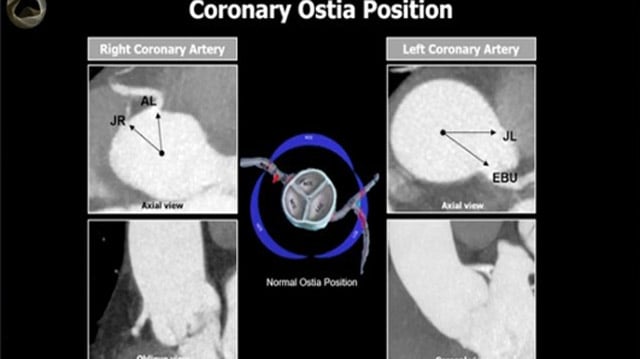
EuroPCR 2023 Hotlines/Late-Breaking Trials: focus on wire and image-based physiology
18 May 2023 – From EuroPCR 2023
Find out more about a series of studies focusing on wire and image based physiology: Coronary microvascular function and CT coronary angiography trial aiming to assess whether endotype diagnosis informed by coronay function testing vs angiography improved angina; a 5-year follow up of the DEFINE FLAIR;...
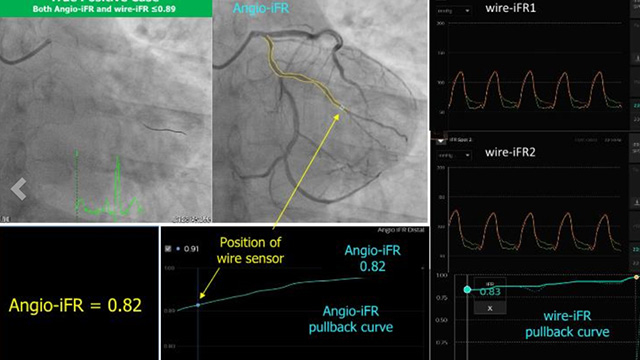
Left main and complex bifurcation stenting
18 May 2023 – From EuroPCR 2023
Want more training on bifurcation stenting? Learn from the case of this 75-year-old active man, a retired engineer, suffering from effort angina CCS 3 for 6 months, referred to the centre by his cardiologist for a coronary CT scan. He is a former smoker, has a...

Next generation balloon expandable TAVR and thin strut BRS - Science and clinical update
17 May 2023 – From EuroPCR 2023
Join this session for an update on the science and clinical advancements in next-generation balloon-expandable transcatheter aortic valve replacement (TAVR) and thin strut bioresorbable scaffolds (BRS). Discover how these innovative technologies can improve clinical outcomes by exploring case-based challenging scenarios and learn effective strategies for tackling...

What to do with isolated non left main side branch stenosis?
17 May 2023 – From EuroPCR 2023
Encountered isolated non left main side branch stenosis? Unsure how to proceed? Join this session to discuss treatment dilemmas for symptomatic patients with positive stress tests. Explore risks to the main vessel and learn safe approaches. Don't miss out!

Left main bifurcation treatment with Ultrathin Supraflex Cruz stent: from non-invasive angiography to invasive assessment of anatomy and physiology
16 May 2023 – From EuroPCR 2023
In this session, experience a multimodality approach, including CTA, angiography and OCT, and learn how to reestablish good hemodynamic of the bifurcation, by analyzing the case of an 81-year-old man with no risk factors, no relevant comorbidities, and no treatment, who presented with crescendo effort angina.

Definitions and standardized endpoints for treatment of coronary bifurcations: Bif-ARC
03 Jun 2022
The current consensus document, which is prepared by the collaboration of the most renowned interventional cardiology societies and academic research organizations, aims to provide standardized definitions for bifurcation lesions.

Reviewer
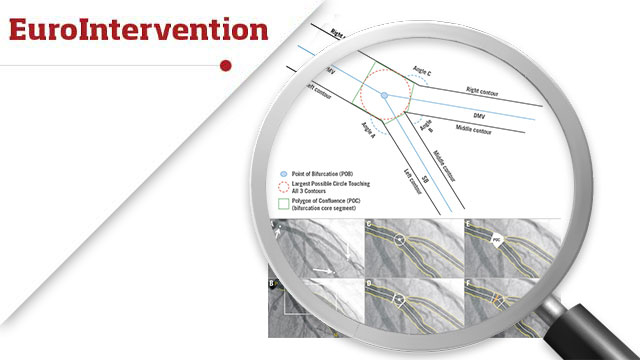
Left main and complex bifurcation PCI in high bleeding risk patients
View the life challenging case of a 90-year-old male patient with a very active lifestyle but hypertension, dyslipidemia, ex-smoker, who presented with left main bifurcation lesion, and appreciate the value of transradial approach for left main and complex bifurcation PCI, acknowledge Ultimaster DES results in bifurcations and high...
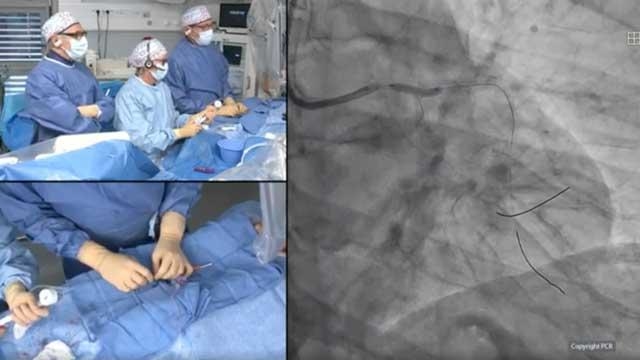
Image-guided bifurcation stenting - In vitro beating heart simulation-based learning from Japan
18 May 2022 – From EuroPCR 2022
The focus of this EuroPCR 2022 session is on complex bifurcation intervention: learn a step-wise approach using imaging in a bifurcation stenting strategy, acknowledge the geographical differences in the way we approach these techniques, and experience the use of simulation-based learning on an in vitro beating...
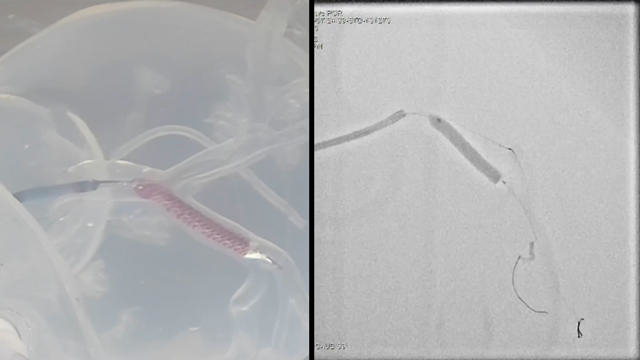
How to use coronary CT imaging and physiology for multivessel disease
18 May 2022 – From EuroPCR 2022
How can imaging and physiology help treat this 77-year-old female patient, ex-smoker, with dyslipidemia, stable angina, and EF at 60 %, or this 67-year-old male patient with HTN, CCS class III, and LV EF at 61 %? The answers in this EuroPCR 2022 session.
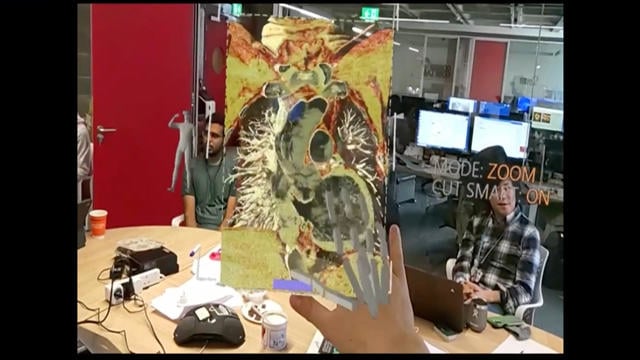
How to select three-vessel disease patients eligible for PCI and guide the treatment by angiography-derived physiology
18 May 2022 – From EuroPCR 2022
What is angiographic SYNTAX score? Are 3VD all the same? What do ESC guidelines recommend? You will find answers to these questions, and many more, in this EuroPCR 2022 session, through which you will learn how to identify the right patient for three-vessel PCI, select the lesions to be...
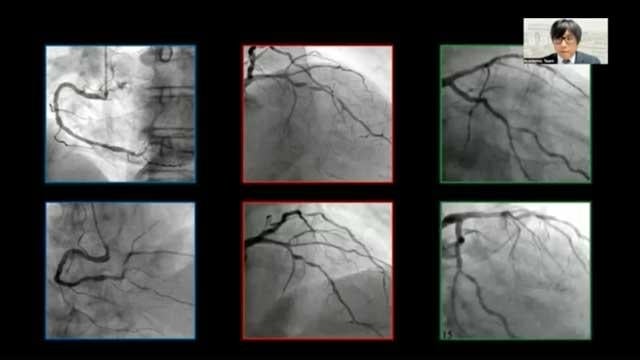
Innovations in simulation-based training, procedural planning, monitoring and robotic PCI
17 May 2022 – From EuroPCR 2022
In this session, find out more about telemedicine, mixed reality technology in CTO proctoring, new-human grade simulator for ViV procedure planning, distance proctoring for transseptal TMVR, stent positioning assistance system, and robotic PCI.
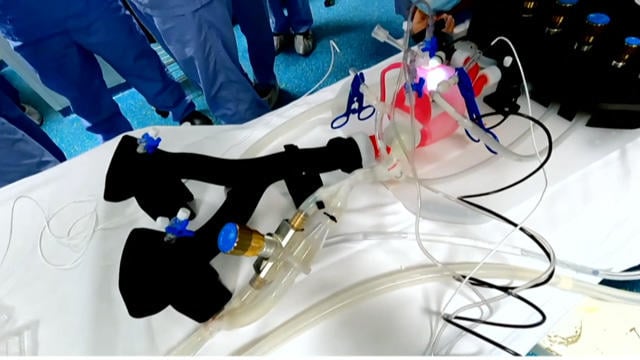
How to deal with calcified lesions
17 May 2022 – From EuroPCR 2022
View the recorded case of a 76-year-old former smoker male patient with hypertension and dyslipidemia and a history of distal RCA and mid-LAD PCI in 2003, CABG and AVR in 2007, and pacemaker implantation for total AV Block, referred to the cathlab for CCS III, and...
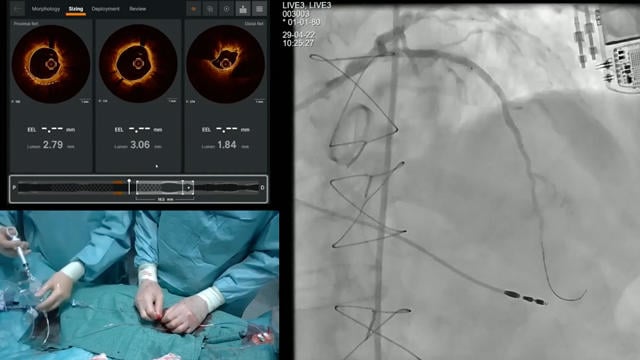
Clinical decision based on coronary physiology: where do we stand in 2022?
17 May 2022 – From EuroPCR 2022
Watch this EuroPCR 2022 session if you want to know the latest updates on integrating physiology into optimal revascularization in the cathlab: improvements in wire-based technologies, QFR from online or offline CAG, CT angio coupled with FFR, and physiology-guided vs angio-guided revascularization in ACS.
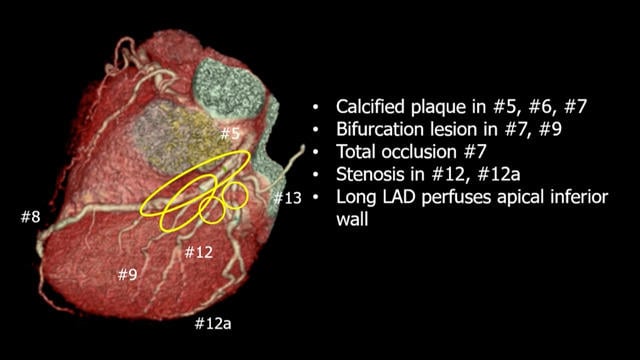
Removing aspirin from STEMI patients - Can we improve bleeding without compromising on results?
17 May 2022 – From EuroPCR 2022
Watch this EuroPCR 2022 recording by Yoshinobu Onuma, Joanna Wykrzykowska, and Victor Alfonso Jimenez to understand why monotherapy following STEMI can be beneficial for patients, and why aspirin should be eliminated from post-PCI care, and to learn about the ASET SUPREME study.
View more videos and course...
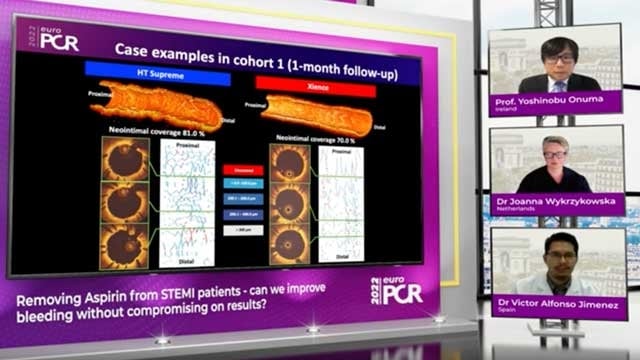
The role of physiology, CT and intracoronary imaging for the management of multivessel disease (Part 2)
19 May 2021 – From EuroPCR 2021
Watch this session if you want to understand the role of invasive physiology in planning, guiding and evaluating your PCI strategy in MVD, to appreciate the role of intravascular imaging in the optimisation of PCI in such patients and to explore the expanding role of CT...

EuroPCR 2021 - Innovations in stable CAD
18 May 2021 – From EuroPCR 2021
In this session, consider the accuracy of OFR in assessing stenting result and residual disease, appraise a novel hybrid IVUS-OCT catheter system, and question whether NOCAD/INOCA patients could be diagnosed with a new physiological wire by obtaining pressure-derived CFR.
